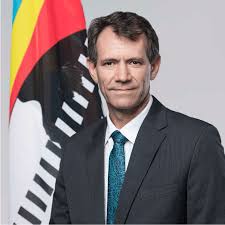By Delisa Thwala
In a bid for more inclusivity of emaSwati at grassroots levels, the Government, through the Ministry of Finance, is taking the budget to the people.
This was announced by the Minister of Finance Neal Rijkenberg during his weekly video blog, posted on the Ministry’s social media page.
The Minister spoke about taking the budget to the people and providing practical financial advice, encouraging Emaswati to make informed decisions regarding their spending and investments, especially as the festive season approaches.
RELATED: Minister Neal lauds African GDP growth despite challenges at AU Finance Session
“We want the opinion and input of emaSwati from the grass-roots level on the budget; they can list theirs with Bucopho, Members of Parliament who in turn will make sure it is taken to the House of Assembly,” said the Minister.
Rijkenberg said National budgets are a government’s most powerful economic tool to meet the needs of its people and are essential to both SDG16+ implementation and accountability.

According to the United Nations toolkit report, the national budget is a financial statement presenting the government’s proposed revenues and spending for a specific time, usually a year,
which is often passed by the legislature, approved by the head of government, and presented by the finance minister to the nation.
The report further states that the national budget is a government’s most powerful economic tool to meet the needs of its people, especially those most at risk of being left behind.
RELATED: 87% of Financial Inclusion has been a result of all mobile money banking services.
“As a political expression of the decisions of the executive government to raise revenues and allocate public resources,
it is an integral part of national development strategies, with wide-reaching impacts across both the economy and society,” reads the Toolkit.
It is worth mentioning in most countries, the budget process occurs in four ways, which include budget formulation, budget approval, budget execution, and budget oversight.

